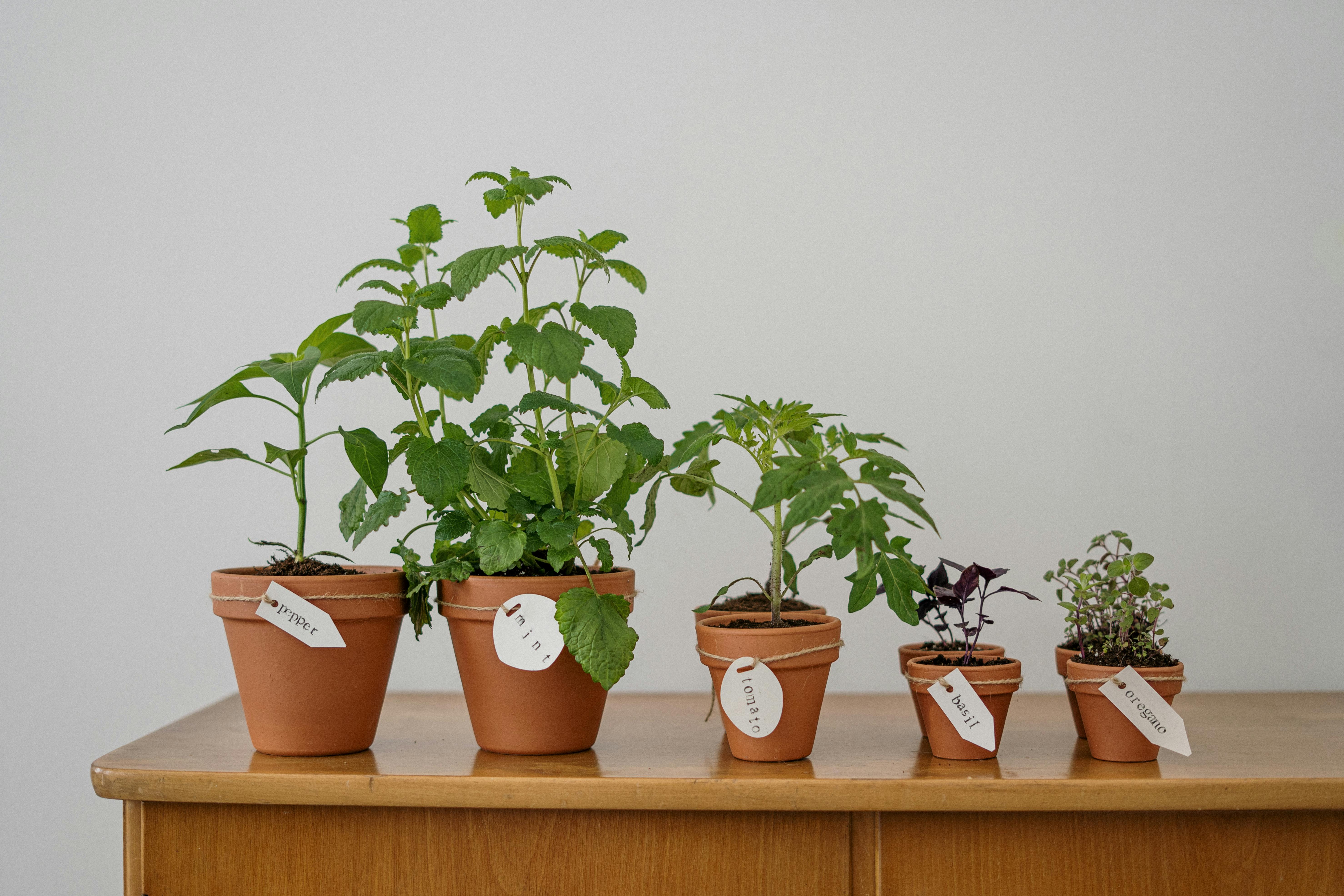Tomatoes are a popular summertime crop and while they are relatively easy to grow, they can be vulnerable to pests such as squirrels. To protect tomato plants from squirrels, there are a few steps you can take. In this article, we will discuss the different measures you can take to protect your tomato plants from these pesky critters.To keep squirrels away from tomato plants, the first step is to make sure the area is kept clean. Remove any debris, fallen fruit, and other potential food sources that may attract the squirrels. Next, create a physical barrier around the tomato plants using a fence or netting. Make sure to use materials that are strong enough to prevent squirrels from climbing over or digging underneath it. Additionally, you can sprinkle cayenne pepper, chili powder, or other spicy substances around the tomato plant to deter squirrels. Finally, consider placing traps in areas where squirrel activity has been observed and check them daily for any caught animals.
What Repels Squirrels From Tomato Plants
Squirrels can be a nuisance in your garden, especially around your tomato plants. They can damage the plants and steal the fruits before they are ripe. To keep them away from your tomatoes, you will need to take some measures to repel them. There are several methods you can use to deter squirrels from your tomatoes, such as using physical barriers or natural repellents.
Physical barriers are one of the most effective ways to keep squirrels away from your tomato plants. You can construct a fence around the garden or place netting over the plants. This will prevent squirrels from entering and getting to your tomatoes. You should make sure that the fence is tall enough so that the squirrels cannot jump over it, and that there are no gaps where they could squeeze through.
Natural repellents are another option for keeping squirrels away from your tomato plants. Many of these repellents contain ingredients such as cayenne pepper, garlic, or vinegar which have an unpleasant smell or taste for squirrels and will discourage them from entering your garden. You can also plant certain species of plants near your tomatoes which have a strong odor that repels squirrels, such as lavender or marigolds.
Another way to repel squirrels is by using loud noises or bright lights around the area where you are growing tomatoes. Squirrels do not like loud noises and bright lights and will avoid areas where they feel uncomfortable or threatened by these things. You can also use motion-activated sprinklers which will spray water at any movement detected in the area, scaring off any intruding squirrels.
By taking some simple steps such as using physical barriers, natural repellents, loud noises or bright lights you can protect your tomato plants from being damaged by pesky squirrels!
Fencing to Protect Tomato Plants from Squirrels
Protecting your tomato plants from squirrels can be a difficult task. Fortunately, there are several steps you can take to keep these pesky critters away from your garden. Fencing is one of the most effective ways to keep squirrels out of your garden. Setting up a fence around your tomato plants is an easy and inexpensive way to keep them safe and healthy.
When selecting a fence for your garden, it’s important to choose one that is strong enough to withstand the chewing and digging of squirrels. A wire mesh fence is a great choice because it’s strong and durable, yet lightweight enough to move if necessary. Make sure the fence is at least four feet tall, as this will help deter any curious critters from getting into your garden. If you have a particularly crafty squirrel, you may want to opt for an electric fence that will give them a mild shock if they attempt to get through it.
In addition to fencing, there are some other methods you can use to protect your tomato plants from squirrels. One option is planting some repellent plants around the perimeter of your garden. Plants like marigolds, garlic, and chives are known for their ability to repel pests like squirrels and rabbits. You can also sprinkle some ground cayenne pepper around the edges of your garden as another form of protection against these pesky critters.
Finally, it’s important to be extra vigilant in looking for signs of damage or any potential problems with your tomato plants due to squirrel activity. Keep an eye out for chewed leaves or stems, uprooted plants, or any other signs that a critter has been snacking on your tomatoes! By taking these steps, you’ll ensure that your tomato plants stay safe and healthy all season long.
Deterrents for Keeping Squirrels Away from Tomato Plants
Squirrels can be a nuisance to tomato plants, as they often eat the fruit before it ripens. Fortunately, there are several ways to deter them from damaging your tomatoes. One of the simplest methods is to create a physical barrier around the plants. This can be done by installing a mesh or netting around the perimeter of the garden bed, or by using stakes and string to create an enclosure. Other deterrents include planting strong-smelling herbs such as rosemary and garlic near the tomatoes, or spraying a mixture of cayenne pepper and water onto the leaves of the plants. Additionally, you can try setting up motion-activated sprinklers or ultrasonic sound devices that will scare away squirrels when they come too close. With a combination of these tactics, you should be able to keep squirrels away from your tomato plants and enjoy a bountiful harvest this season.
Homemade Repellents for Keeping Squirrels Off Tomato Plants
Squirrels can be a real nuisance in the garden, particularly when it comes to tomato plants. They will not only eat the tomatoes, but they can also damage the stems and leaves of plants. Fortunately, there are some easy homemade solutions that you can use to keep these pests away from your tomatoes.
One of the most effective ways to repel squirrels is by using a hot pepper spray. To make this spray, simply mix equal parts of cayenne pepper and water in a spray bottle and apply it liberally to the tomato plants. The heat from the pepper will discourage squirrels from coming near your tomatoes. You may need to reapply this spray every few weeks or after heavy rains.
Another option is to place various repellents around your tomato plants. Some options include placing mothballs around the base of the plant, sprinkling coffee grounds or garlic powder around the area, or even planting certain types of marigolds near your tomatoes as they are known to repel squirrels.
You can also try setting up a live trap near your tomato plants so that you can capture any squirrels that do come near them. Once you have caught one, you should release it far away from your garden so that it does not return. This may take some patience as it may take some time for them to be attracted to the bait in the trap.
Finally, if all else fails, consider fencing off your tomato plants with chicken wire or mesh fencing which should keep out most squirrels and other small animals such as rabbits and groundhogs. Be sure to bury the bottom portion of the fence at least six inches deep into the ground so that they cannot dig underneath it.
By using these homemade repellents, you should be able to keep those pesky squirrels away from your precious tomato plants!

Using Sprays and Powders to Keep Squirrels Away From Tomato Plants
When growing tomatoes, one of the most common pests that can cause damage to the plants are squirrels. Fortunately, there are a variety of sprays and powders available that can be used to help keep them away. These products can be applied directly to the plants or around the perimeter of your garden, providing a barrier that will deter squirrels from entering.
Sprays are typically made from natural ingredients like peppermint oil or cayenne pepper, which have an unpleasant smell and taste for squirrels. When sprayed onto the foliage of tomato plants, they create an unpleasant scent that will discourage squirrels from returning. Additionally, many of these sprays also contain other active ingredients such as clove oil and garlic oil which have been known to repel rodents.
Powders are another effective way to keep squirrels away from tomato plants. These products contain deterrent ingredients such as diatomaceous earth, which has sharp edges that will irritate any animal that tries to walk over it. Additionally, many powders also contain strong-smelling substances such as garlic powder or cayenne pepper which create an unpleasant aroma for squirrels when they come into contact with it.
It’s important to note that both sprays and powders should be reapplied periodically in order for them to remain effective at deterring squirrels away from your tomato plants. Additionally, you should always read the instructions on any product before using it in order to ensure safe and proper use. With proper application, you can rest assured knowing that your tomato plants are safe from pesky critters!
Noise Deterrents for Keeping Squirrels Out of Tomato Plants
Squirrels are some of the most persistent pests when it comes to tomato plants. They’ll often try to dig up the roots, nibble on the leaves, and eat the fruits. While there are several ways to keep them away, noise deterrents have proven to be one of the most effective methods.
Noise deterrents work by producing loud or unpleasant sounds that scare off squirrels. This can include using wind chimes, bells, or even playing recordings of distressed animals or predators. You can also use motion-activated sprinklers that will give squirrels a surprise soaking when they come near your garden.
Another way to deter squirrels is by using reflective materials such as Mylar balloons. These balloons reflect light and make noise when they move in the wind which causes squirrels to stay away from your garden. You can also use other items like aluminum foil to create a reflective surface that will scare them away as well.
Finally, you can set up ultrasonic devices that produce high-frequency sounds that are inaudible to humans but unpleasant for animals like squirrels. These devices emit short bursts of sound that will annoy and scare away any critters in your tomato patch.
Noise deterrents are an effective way to protect your tomatoes from pesky squirrels and other small mammals without harming them in any way. With a combination of sound, motion-activated sprinklers, reflective materials, and ultrasonic devices, you can create an environment that will keep these critters away from your plants without having to resort to more extreme measures such as traps or chemical repellents.

Conclusion
Protecting tomato plants from squirrels is a challenging but achievable task. Although there are no foolproof methods to ensure that squirrels do not access or damage your tomato plants, you can take several proactive steps to reduce the risk. Planting tomatoes in raised beds, covering the plants with netting, and using repellents and deterrents are all effective strategies for keeping squirrels away from your tomatoes. All of these methods should be used in combination with one another for maximum effectiveness.
If you want to protect your tomato plants from squirrels, then you should start by making sure they have a strong foundation and the proper support. Raised beds will help keep their roots safe and allow them to grow without competition from other animals or plants. Additionally, using repellents and deterrents will discourage squirrels from approaching your garden. Lastly, using netting as an additional layer of protection can give you some peace of mind knowing that your tomatoes are safe and sound.
By following these steps, you can ensure that your tomato plants are safe from pesky squirrels!

